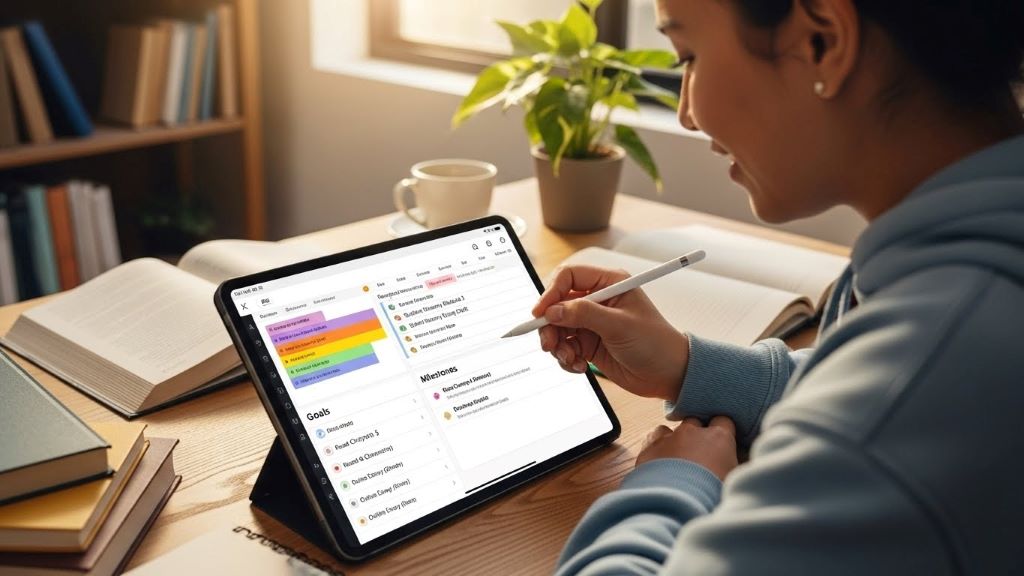Know how a study habit is developed and acquire it to achieve better results in your examinations.
How is that transition? Will I be preparing well to get to the faculty? How will I have to improve? Will I have a study habit? All these questions and more we will try to answer, giving you a Study Guide of useful and practical tips to be able to face this stage better, learning to study.
How do we face the transition between the secondary and the faculty? How do I generate my study habit?

Organize! Plan your day, your schedules, your tasks. It is very important to start being autonomous and not leave “everything for the ultimate”. You must also write down and schedule all your priorities and dates, to anticipate the exams and keep them in mind.
Another thing that has to do with the organization, is taking notes and have the complete material to study. We know it is a difficult stage, where many times we feel overwhelmed by the amount of new things, obligations and demands but if we are trained with these tools, it will be much easier to overcome the obstacles.
In this stage of transition, it is very important that you go mentalizing to take this big step. You need to have confidence in yourself and safety in what you do. Try to implement these techniques during the last years of high school and if soles take you materials, even more. Concentrate and start to warm up before entering the university world. How much earlier we generate the study habit, the better it is!
How do I prepare for my first exam?
In order to be able to study for the exams, we must be clear that the contents of the texts that we saw in the secondary, both the complexity and / or the size, are not the same. That is why we must be more methodical at the time of studying, not to frighten or block us, but to advance, being necessary to study in advance.

Being methodical implies: Having a global reading of the material: This means being able to easily detect the purpose of reading, to know what to focus on. This stage will allow us to have the central idea of the text, the subject to be treated.
The next step of study is the analytical reading: This is a more complex stage, where we should get more involved with the text, interact with it, question it. We must carry out an analysis, an interpretation and an understanding of it to understand in depth what it wants to transmit to us.
Finally: A synthetic reading. Here we will put our own elaboration into play. This can be as much in the creation of synoptic tables, conceptual networks, summaries, etc., as in the well-known techniques of underlining and marginal notes. These will help us to synthesize the text through a thread. A thematic structure and with it we will be able to make the different types of summaries or pictures to study.
What does a teacher evaluate?

The teacher will evaluate your Writing: It is important how you write your text, it has to be understandable. The articulation and the chain of ideas is a key step for this point the academic language. You must implement new vocabulary and lexicon, using a clear, precise language and maintaining a good spelling.
Last and most important, the content: Cite the author, conceptualize, explain and analyze the ideas of the same, their theses, their arguments, answering the questions adequately, creating clarity and conceptual coherence.
Tips:
It is good to be able to relate the topics of study with everyday life. To have a conversation with our peers or adults to commit it, to ask questions. This will make it simpler and you will be able to better internalize the concepts studied.
It is good to practice oratory, in front of a mirror and in a loud voice. So, you can see your expressions your gestures and how you communicate your ideas, clearly or not. This will prepare you for oral exams, to speak more fluently and fluently, leaving shyness and shame aside for improving study habit.







